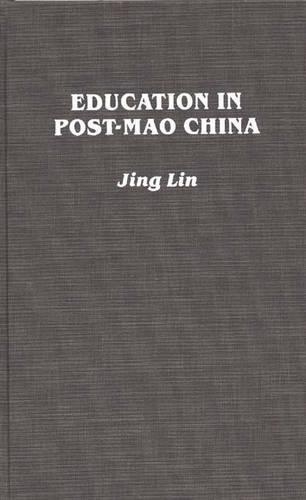
Education in Post-Mao China
(Hardback)
Publishing Details
Education in Post-Mao China
By (Author) Jing Lin
Bloomsbury Publishing PLC
Praeger Publishers Inc
24th November 1992
United States
Classifications
Tertiary Education
Non Fiction
Philosophy and theory of education
Pressure groups, protest movements and non-violent action
Economics
370.951
Physical Properties
Hardback
152
Description
A rare insider's view of educational development and problems in China since economic reform began in 1978, this volume critically examines the issue of political socialisation through the curriculum and compares the curriculum used during the Cultural Revolution with that compiled and used throughout China in 1988. Also explored are problems with student dropouts and teacher motivation in rural education and government-supported nonformal education; the tracking system and vocational education development in urban schools; problems that came about with economic and political reform; and the issue of inequality existing between and within rural and urban schools. Turning to recent decentralisation efforts in school administration, the author analyses evidence suggesting that educational policy is still politically controlled. Additionally, the development of educational research in the 1980s and 1990s constitutes the topic of one chapter, based on hundreds of published books and papers. Finally, Jing Lin reflects on the massive student movement that arose in the spring of 1989 and delineates the social, economic and political changes that sparked it. This final section treats these educational changes as an interconnected whole that underlay the movement and gave it such distinctive characteristics as nonviolence and a rational, constructive outlook.
Author Bio
JING LIN is Assistant Professor at McGill University in Montreal. She is the author of The Red Guard's Path to Violence (Praeger, 1991), and taught for a number of years in China.
